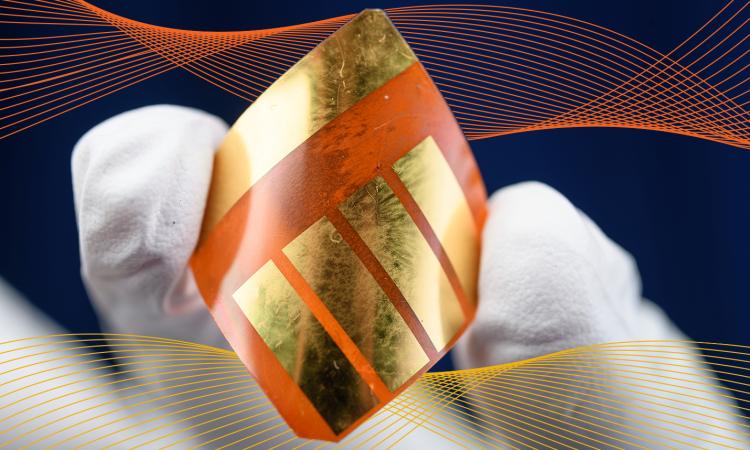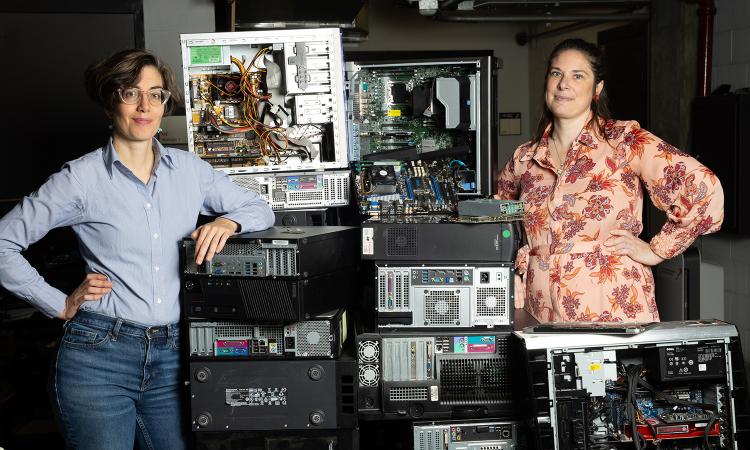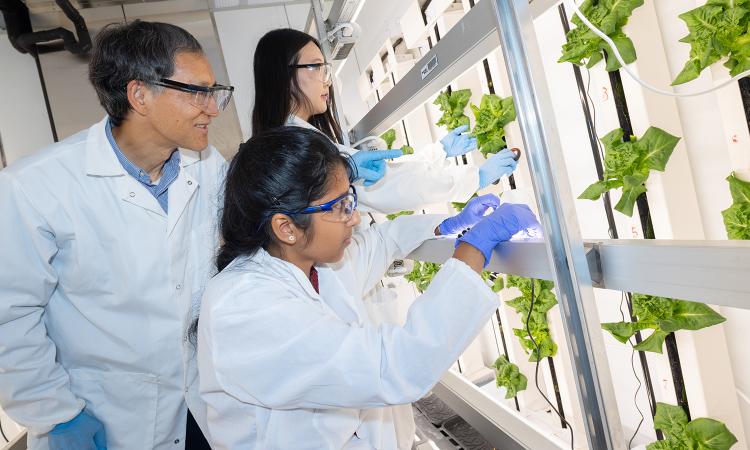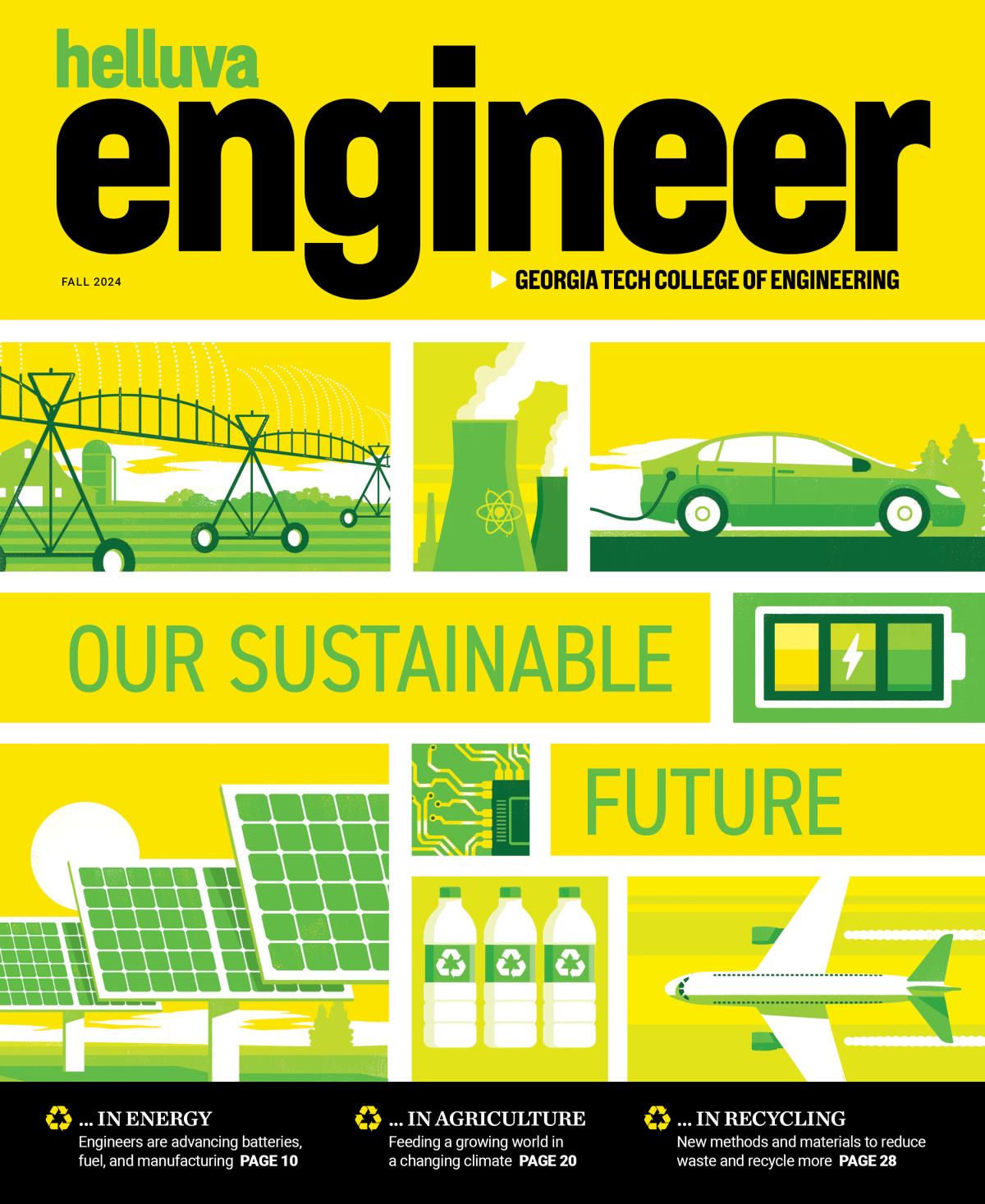Alumnus and investor Mark Cupta supports ideas and entrepreneurs working to have a positive impact on our climate.
(text and background only visible when logged in)
Alumnus Mark Cupta started his career in a variety of research, engineering, product development, and business strategy roles at Fortune 500 companies. Cupta is a double Jacket, having earned a bachelor’s in chemical and biomolecular engineering in 2004 and a master’s in 2006. Now he’s a managing director at Prelude Ventures, a climate venture capital firm.
1. Why did you choose Georgia Tech?
Georgia Tech was the only school I applied to coming out of high school. Looking back, it does feel a bit naïve or risky, but I was determined. Ever since I can remember, I wanted to be a scientist or engineer. Growing up in Georgia with one of the best engineering schools in the world in my backyard just felt like too big of an opportunity to pass up.
In fact, I chose Georgia Tech twice: I had multiple options for my engineering graduate degree. However, Tech’s chemical engineering school was the only program that specifically met all my needs. I truly felt wanted there.
2. What drew you to chemical and biomolecular engineering?
My father has an advanced degree in chemistry, and growing up, he would occasionally bring pieces of his work home to share with me. This stoked my curiosity for chemistry at an early age. Over time, I learned I was far more interested in how chemicals or materials were made and how they functioned. Chemical engineering felt like a natural choice.
3. What is a climate investor and how did you end up as one?
Climate investors come in all shapes and sizes. Anyone who considers climate change as a factor in the products they buy or the money they invest can be a climate investor.
I personally developed a passion for venture capital investing during my time in business school at Stanford. I found I had little to no interest in the traditional markets for venture capital, which are largely focused on software. I wanted to invest in companies and technologies that drove innovation in the physical world. I also wanted my investments to have a positive impact in addition to their financial returns. Investing in climate was the perfect combination of all those factors.
4. Why does investing in climate-related tech appeal to you?
Addressing climate change is the biggest challenge facing humanity today. Nearly everything we make, do, or use has an impact on our climate. The scope and scale of the problem is enormous, but that also makes it an incredible investment opportunity. The companies I get to work with on a daily basis are transforming multibillion dollar industries — energy, transportation, food and agriculture, industrials, and the built environment. Working on something I deeply care about combined with the fact that I get to satisfy my extreme curiosity toward innovation has transformed my work from a career to a true calling.

Mark Cupta (Photo: Barak Shrama)
5. What kinds of technologies do you want to invest in?
My specialty is investing at the intersection of frontier technology and climate. I look for companies that solve problems in ways that demonstrate a step-change improvement in their markets. I also gravitate toward technological innovations that leverage macro trends to do something that previously seemed impossible. Companies applying recent advancements in fields like material science, biology, robotics, and artificial intelligence to climate problems will almost always get my attention.
6. What qualities do you look for in a promising climate startup?
I do not differentiate a promising climate startup from any other venture capital startup. As an early-stage investor, we are evaluating similar characteristics in companies: the quality of the team, the transformational nature of the technology or business model, and the size of the market opportunity, for example. The difference is that I also screen investments based on their potential to reduce greenhouse gas emissions. Then, I assess whether the business has the potential to become a category-defining company in its sector.
7. How did your Georgia Tech education prepare you for this work?
Georgia Tech engineers are trained to break down difficult problems into digestible parts to come up with viable solutions. That skill set is drilled into you in nearly all aspects of your education. A venture capitalist’s most important skill is their ability to climb a steep learning curve in a wide range of market sectors, technologies, and business models. I see hundreds of companies each year, but I only make investments in a few. My engineering background provides me with a toolkit that is essential for my decision-making process.
(text and background only visible when logged in)
I’ve been involved in climate investing for over a decade, and I can honestly say that the quality and quantity of people dedicating their careers to climate is accelerating. There is real momentum in this sector, and I’m excited to see what we can do together over the next decade.
MARK CUPTA
(text and background only visible when logged in)
8. What are some of the most exciting climate-related technologies you see coming in the near future?
One theme that we are particularly excited about at our firm is the “electrification of everything.” We continue to make great progress on decarbonizing our electrical grid, and that enables us to use renewable electrons to decarbonize other industries. The obvious example is electric vehicles, but we are seeing exciting technologies that will use renewable energy to decarbonize heavy industries like steel, cement, fertilizer, and hydrogen production. With that in mind, we also need to continue to invest in the future of zero-carbon energy production and grid stability. This includes long-duration, grid-scale batteries and moonshot ideas in geothermal and fusion power.
9. Have you learned something from your work that’s changed your own choices or behavior to reduce your climate impact?
The average U.S. citizen is responsible for just under 100 pounds of carbon dioxide equivalent emissions per day. That disheartened me when I first thought about how to reduce that number in my own life. I have done obvious things like using an electric vehicle for my daily commute and replacing an old natural gas heater with an electric heat pump. I’ve come to realize that the most important thing I can do to reduce my climate impact is vote with the climate in mind. Effective policies that will help drive change in the large emitting industries and infrastructure is the biggest lever we have as a society.
10. What makes you most hopeful about our ability to mitigate the effects of climate change?
It’s easy to feel the gloom and doom of climate. We are seeing record-setting weather events with devastating effects more frequently all over the planet. My hope lies with the people working in this field. I’ve been involved in climate investing for over a decade, and I can honestly say that the quality and quantity of people dedicating their careers to climate is accelerating. There is real momentum in this sector, and I’m excited to see what we can do together over the next decade.
(text and background only visible when logged in)
(text and background only visible when logged in)
Related Stories

Powering Up
Our researchers are creating new technologies that pollute less and store more energy — while also ensuring the manufacturing process is clean.
(text and background only visible when logged in)

To Hell with Garbage
In the quest to reduce, reuse, and recycle, Georgia Tech engineers are at work on ways to divert more trash from landfills, tame plastic pollution, and cut waste from electronics.

Planting the Seeds of the Farm of the Future
Georgia Tech engineers are working to reduce the environmental impact of farming while creating technologies to help farmers feed a growing world and adapt to a changing climate.
(text and background only visible when logged in)

Helluva Engineer
This story originally appeared in the Fall 2024 issue of Helluva Engineer magazine.
In a world with more people, more energy needs, and more waste than ever, Georgia Tech engineers are hard at work developing the tools and technology for everyone to thrive. We’re diverting trash from landfills and taming plastic pollution (while finding alternatives to plastic in the first place). We're reducing the environmental impact of agriculture and finding new ways to fertilize the fields growing food for a growing world. And engineers are powering up the batteries, fuels, and renewable sources to meet surging energy demand. The future is coming; we're making it more sustainable.